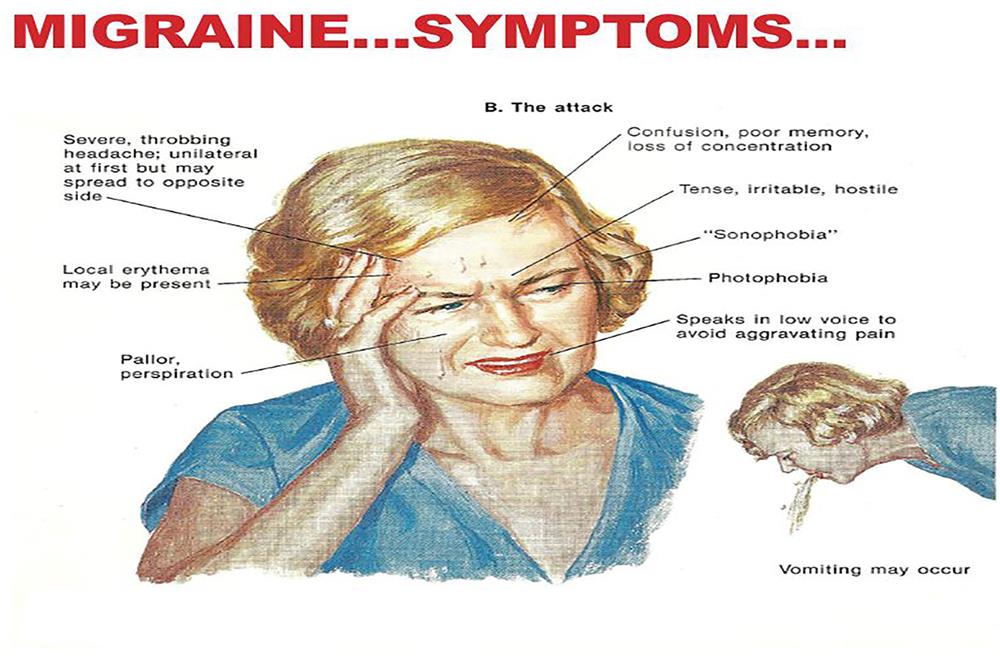Migraines are very common, for every hundred people, approximately 18 have a chronic headache, most of them women (approximately 75%).
MIGRAINE HEADACHE SYMPTOMS
Pain: The pain of a migraine headache usually begins gradually, intensifies over minutes to one or more hours, and resolves gradually at the end of the attack. The headache is typically dull, deep, and steady when mild to moderate in severity; it becomes throbbing or pulsatile when severe.

Migraine headaches are worsened by light, sneezing, straining, constant motion, moving the head rapidly, or physical activity. Many migraine sufferers try to get relief by lying down in a darkened, quiet room. In 60 to 70 percent of people, the pain occurs on only one side of the head. In adults, a migraine headache usually lasts a few hours, although it can last from four to 72 hours.
Other symptoms: Migraine headaches are often accompanied by nausea and vomiting, as well as sensitivity to light and noise. Between 10 and 20 percent of people with migraines also experience nasal stuffiness and runny nose, or teary eyes.
The symptoms of a migraine attack may be severe and alarming, but in most cases there are no lasting health effects when the attack ends.
Aura: About 20 percent of people with migraines experience symptoms before the headache; this is called an aura. The aura may include flashing lights or bright spots, zigzag lines, changes in vision, or numbness or tingling in the fingers of one hand, lips, tongue, or lower face. You may have one or more of these aura symptoms.
Auras may also involve other senses and can occasionally cause temporary muscle weakness or changes in speech; these symptoms can be frightening.
Aura symptoms typically last five to 20 minutes and rarely last more than 60 minutes. The headache occurs soon after the aura stops. Muscle-related auras may last longer.
MIGRAINE HEADACHE TRIGGERS
Migraines can be triggered by stress, worry, menstrual periods, birth control pills, physical exertion, fatigue, lack of sleep, hunger, head trauma, and certain foods or drinks that contain chemicals such as nitrites, glutamate, aspartate, tyramine.
Certain medications and chemicals can also trigger a migraine, including nitroglycerin (used to treat chest pain), estrogens, hydralazine (used to treat high blood pressure), perfumes, smoke, and organic solvents with a strong odor.
Migraine has no definite cure, but is well controlled by drugs and is one of the best medications to control this chronic Botox headache, as we have explained in the relevant sections.